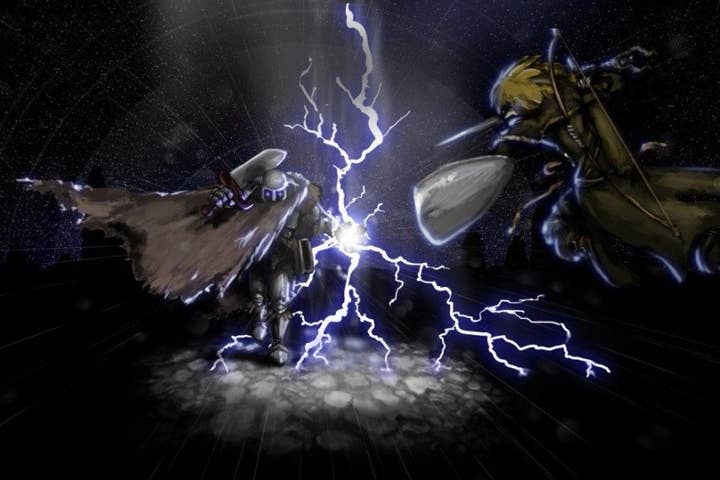Ska Studios laments "toxic" trend in community attitudes
Delay to Salt and Sanctuary's Vita port prompted a backlash from the game's audience
Salt and Sanctuary developer Ska Studios has called for calm over a delayed Vita port, and painted a discouraging picture of the general downward trend in community attitudes.
The Vita port of Salt and Sanctuary was being handled by Sickhead Games, which had previously ported indie hits like Axiom Verge and Towerfall: Ascension to Sony's handheld. According to Ska founder James Silva, the delay was down to neither Sickhead's professionalism of his own planning.
"When we agreed to release on Vita, we were told that the middleware would be done by the time we were, but it's turned out to be a much bigger challenge to the incredibly talented devs working on it than anyone expected," Silva said in a post on the game's Facebook page. "It's no one's fault."
As always, the majority of the community has either been silent or supportive, but Silva was obviously struck by the volume of negative and angry feedback that greeted the delay. To that end, he has introduced what he described as a, "sanity policy." Specifically: "I'm going to delete any post berating us for not having the Vita port done."
"I've seen attitudes go from 95% supportive, 5% meh to 50% supportive, 50% angry, impatient, and downright hurtful"
"I'm working on the Japanese PS4 release, integrating more localisations into all releases, and bug fixes. Another studio is working on the Vita port. Yelling at either studio isn't going to speed up anything," Silva continued. "If you bought Salt and Sanctuary on PS4 solely to own it on Vita and are unsatisfied, you can absolutely ask Sony for a refund.
"Lastly, as a general plea, I wish everyone could be civil to developers. In my nine years of professional indie game development, I've seen attitudes go from 95% supportive, 5% meh to 50% supportive, 50% angry, impatient, and downright hurtful. Not only does it really turn a good mood sour fast, but I just hate to see the industry becoming such a toxic place."
While one might consider various factors in this instance - the dwindling number of new games being released for the Vita, for instance - Silva is just one of many developers to speak out on the subject of internet toxicity. One of the most prominent examples is Adam Orth, who lost his job at Microsoft for an offhand Twitter comment about the underlying strategy behind the Xbox One.
"I was becoming the next victim of the internet hate phenomenon. It was an absolute feeding frenzy," Orth said in a talk at GDC. "The reason that internet threats are terrifying is not the possibility of the realisation of a violent act; it's that society has regressed to a point that this behavior and discourse is an acceptable and expected response to something someone doesn't like or agree with."
Recently, Rob Fahey tackled one particularly active breeding ground for online toxicity: Steam, which, in the absence of proper moderation and regulation by Valve, has become, "open season for the worst behaviours and tactics of the Internet's reactionary malcontents."
Fahey highlighted a recent tweak in how Steam presents user reviews, seemingly designed to bypass or reduce the impact of collaborative, community-driven smear campaigns. However, the issue is now too large and sprawling for "some genius little bit of code" to properly address.
What's required now is more akin to Ska Studios' "sanity policy," where problematic commenters are assessed and eliminated individually.

